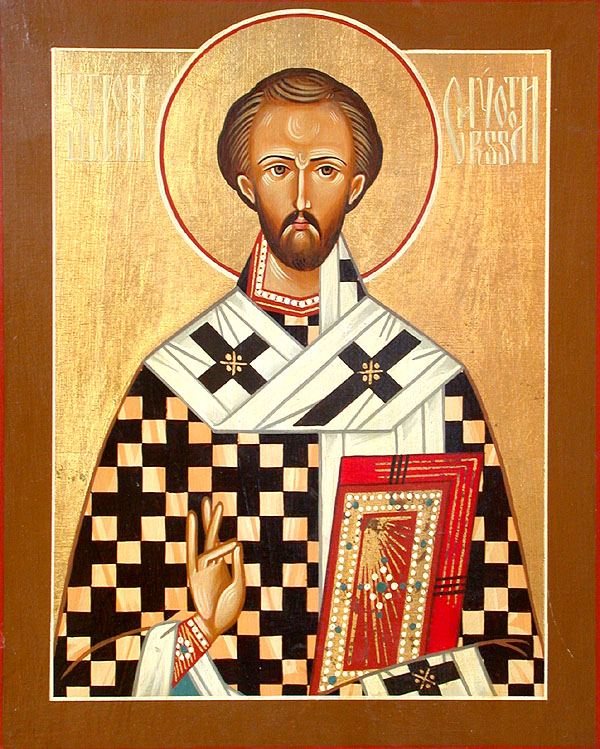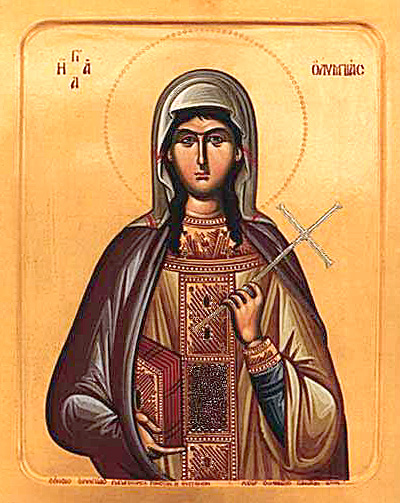Saint John Chrysostom

Saint John Chrysostom (c. 347–407) lived for several years as a monk in the caves near his hometown of Antioch. However, he so injured his health through his severe asceticism that he came back into the city to live. Eventually he was ordained as a presbyter and given the major preaching duties in the cathedral in Antioch. Having been trained in rhetoric by Libanius of Antioch, one of the last great pagan rhetoricians of the ancient world, John flourished as a preacher, coming to be known as the Golden-Mouth (this is what “Chrysostom” means).
Many of Saint John’s sermons were preached in series as he went through various books of the Bible verse by verse. He eloquently interpreted and explained the texts with great practical wisdom and deeply penetrating spiritual fervor. Hence he is honored in the Church as not only the greatest preacher who ever lived, but also as the greatest Biblical commentator in the Eastern Church.

In 398 Saint John was made Archbishop of Constantinople. Partly because he alienated Empress Eudoxia, and many others, through his forthright preaching against luxury and ostentation, he was unjustly deposed and exiled to eastern Asia Minor in 404. In his many years of preaching he had said much about accepting and bearing innocent suffering patiently and nobly. Especially in these years of exile, he practiced what he preached. He wrote many letters from exile, including many to his closest friend and co-worker, the Deaconess Saint Olympias, encouraging her to stand firm in hope.
He died in 407 on a forced march to a place of further exile, near modern Abkhazia. In spite of all his unjust trials and suffering, his last words were “Glory to God for all things!”
In 438 his relics were brought to Constantinople in triumph. When his coffin was brought into the Great Church there, his voice was said to have rung out, “Peace be with you all!”
